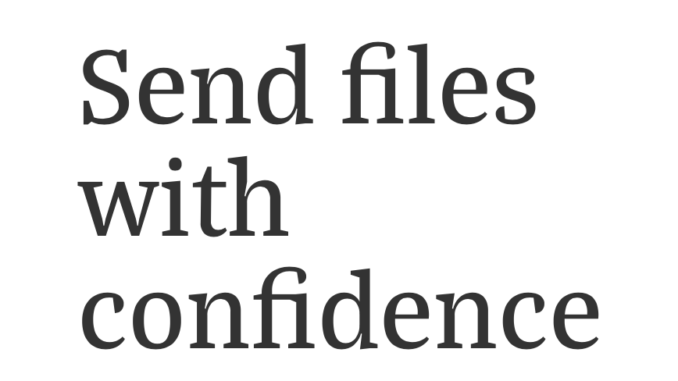
Artificial Lawyer recently caught up with Peter Jidesten, founder of blockchain-based file sharing and data security platform, iDefendo.
This is not the first, nor will it be the last blockchain platform designed to support the secure and verified sharing of information. Yet, there is clearly a growing interest in using this type of technology to verify that data has been properly shared for a variety of IP and data security reasons.
Artificial Lawyer asked Jidesten a few questions to find out some more:
– Why would a person need to verify that they had sent a message to someone? Is this for creative people, e.g. artwork/IP, or is this more for use in the justice sector to prove messages were sent?
 Often when people disagree about who did or said what, it comes down to ‘my word against yours’. When that happens, being able to actually back your side of the story up with hard evidence can make all the difference. So that’s the reasoning behind our extensive – some would say obsessive – logging of data that supports our users’ stories.
Often when people disagree about who did or said what, it comes down to ‘my word against yours’. When that happens, being able to actually back your side of the story up with hard evidence can make all the difference. So that’s the reasoning behind our extensive – some would say obsessive – logging of data that supports our users’ stories.
If you should ever find yourself in a situation where you need evidence that helps you prove that you’re telling the truth, you’ll have the evidence you need. And since you can’t know in advance WHEN that will happen or WHAT you’ll need, we log everything. We use blockchains to prove that our evidence can’t have been manipulated and that it really was collected at the dates and times claimed.
– Fundamentally, what is the added value in using a system like this?
Peace of mind. People and companies send out files containing all sorts of intellectual valuables like codified knowledge, expertise and creativity. Often with no guarantees that their rights to those valuables will be respected. With or without malice, recipients often forget who originally created something.
We do our best to remind them so that credit – and money – goes where credit is due. But our users also get real-time updates on what happens with the files they send, so that they know when the optimal time for a follow-up call might be, or whom to call if files are sent to multiple recipients.
– How is this different from other blockchain-based systems such as NKor?
In one word: automation. Our system is like an automated biographer, diligently taking notes of what you do and how your recipients react to that. As I said before, you can often not know today what you’ll wish you had tomorrow, so we log everything in order to stack the odds in your favor. Nkor and other similar services do a great job, but many of them require active user engagement here and now to get any benefits in the future. We try to do our thing in the background, assisting our users without requiring them to take any special steps for that to happen.
– Will you be issuing a token to use this system, e.g via an ICO?
We currently have no such plans. Frankly, we don’t think the world needs yet another currency. And if we were, for example, to create a marketplace for licensing IP-rights secured by our system, we could just as well base monetary transactions within that marketplace on an existing token, whether crypto-based or fiat. Operating on top of an existing currency would most likely also lead to lower exchange rate volatility, and to more predictable costs and earnings for people buying and selling on the marketplace.
– When and where did you come up with the idea? What inspired this?
We believe that the world runs on trust. People who trust each other do more business with each other, and more business means more prosperity. So we built iDefendo to raise the level of trust between senders and recipients by making it clear to both parties that we keep an eye on the IP rights for our users and that we log and collect evidence that shows intent, behavior and chronology.
The goal is to make recipients not WANT to infringe on our users’ IP rights, so that our users dare to share their creations to a higher extent, leading to more business for them. Also, proving one’s copyright have until now often entailed all kinds of absurd and archaic methods like mailing yourself copies of your own content in order to get timestamps that support your copyright claims. We thought there must be a less medeival way to accomplish that.
– Which blockchain are you using to store the hashes?
Our system is designed to be blockchain-agnostic, so we can switch between different blockchains or use multiple ones simultaneously. Blockchain database security is very much a security-in-numbers thing, so it makes sense for us to tag on to the largest ones.
– How has been the reception so far and are there any law firms using it?
We’re incredibly happy to see that adoption of our service really is taking off now. In a short period of time we’ve been able to set up partnerships with major organizations in IP-intensive industries, like inventors associations, professional photographer associations, music creators and so on, helping their members to protect their rights. We’re also seeing huge interest from the legal sector, with both law firms and legaltech companies starting to use our technology.
It seems our ‘log everything, sort it out later’ approach resonates with the legal industry, especially when combined with the ability to completely render the logged data unreadable whenever that better serves a client’s interests.
– How much does it cost to use regularly?
We have a subscription-based fixed per-seat-per-month pricing that allows virtually unlimited use of the service. So there are no per-instance fees, once you’re a subscriber you’re free to use the system as much as you want. A subscription costs $120 per user and year, or $12 per month and also includes all necessary storage of the files you send. There is a free tier as well, where we offer much of the same service but that doesn’t include the blockchain-based Digital Witnesses that are automatically created for our paying customers.
Thanks! And good luck with the platform.
Discover more from Artificial Lawyer
Subscribe to get the latest posts sent to your email.
1 Trackback / Pingback
Comments are closed.